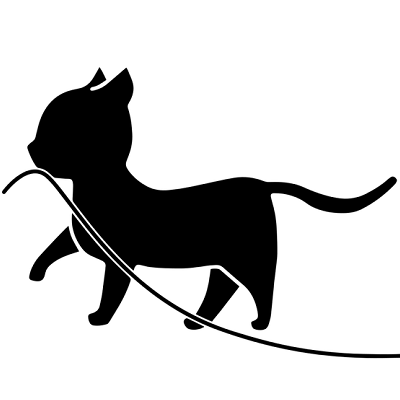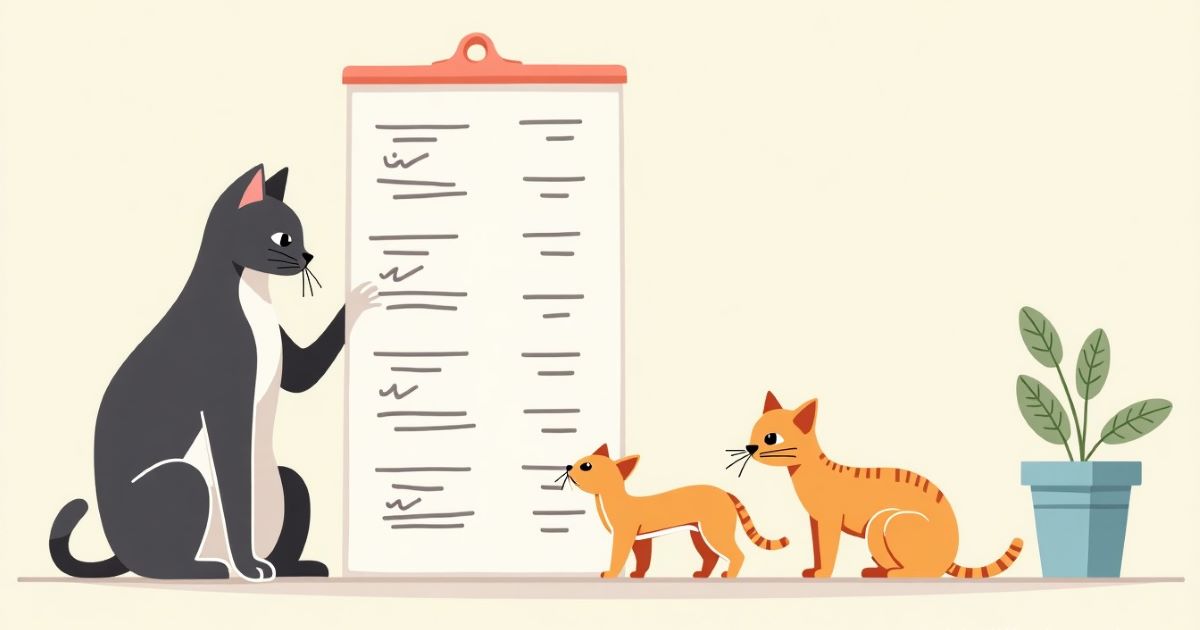今回は、日常会話や試験対策に役立つよく使われる句動詞を例文付きで紹介します。
句動詞とは、動詞と前置詞や副詞が組み合わさった表現のことです。日常会話で頻繁に使われるだけでなく、TOEICなどの英語試験にも役立ちます。この記事では、特によく使われる句動詞を厳選し、例文と一緒に紹介します。

句動詞(phrasal verb)とは?意味と使い方をわかりやすく解説
句動詞(phrasal verb)とは、動詞と前置詞や副詞が組み合わさった表現のことです。たとえば、…
よく使われる英単語集
句動詞(phrasal verb)とは?
句動詞(phrasal verb)とは、動詞と前置詞または副詞の組み合わせのことです。基本的に、元の動詞とは異なる意味を持つのが特徴です。
たとえば、次のような句動詞があります。
- give up(あきらめる)
- look up(調べる)
- look forward to(楽しみにする)
- put on(着る)
句動詞は、個々の単語の意味からは予測しにくいため、個別に覚える必要があります。そのため、例文と一緒に覚えると覚えやすくなります。

句動詞(phrasal verb)とは?意味と使い方をわかりやすく解説
句動詞(phrasal verb)とは、動詞と前置詞や副詞が組み合わさった表現のことです。たとえば、…
よく使われる句動詞一覧|例文付き
よく使われる英語の句動詞200個を例文付きで紹介します。ABC順に並んでいます。

ごがくねこ
句動詞は例文と一緒に覚えると記憶に定着しやすいです。
| No. | 単語 | 例文 |
|---|---|---|
| 1 | back down 引き下がる、撤回する |
He refused to back down during the argument, even though he was wrong. 彼は間違っていたにもかかわらず、議論中に引き下がることを拒否した。 |
| 2 | back up 後退する、支援する、バックアップする |
Make sure you back up your files before upgrading the system. システムをアップグレードする前に、必ずファイルをバックアップして。 |
| 3 | blow up 爆発する、膨らませる、怒る |
The bomb could blow up at any moment. 爆弾はいつ爆発してもおかしくない。 |
| 4 | break down 故障する、分解する |
My car broke down on the way to work. 仕事に行く途中で車が故障しました。 |
| 5 | break in 侵入する、口を挟む、使い慣らす |
Someone tried to break in last night. 昨夜誰かが侵入しようとした。 |
| 6 | break out 急に発生する、脱走する |
A fire broke out in the kitchen last night. 昨夜、キッチンで火事が起こった。 |
| 7 | break up 別れる、解散する、通信が途切れる |
They decided to break up after five years. 彼らは5年後に別れることにした。 |
| 8 | bring along 持ってくる、連れていく |
Don’t forget to bring along your ID. 身分証を持ってくるのを忘れないでね。 |
| 9 | bring up 話題に出す、育てる |
He brought up an interesting point in the meeting. 彼は会議で興味深い点を指摘した。 |
| 10 | brush off 払いのける、無視する |
He brushed off the dust from his jacket. 彼はズボンの泥をはらい落とした。 |
| 11 | brush up 磨き直す、復習する |
I need to brush up on my Spanish before the trip. 旅行前にスペイン語を復習しないといけない。 |
| 12 | call around あちこちに電話する |
I’ll call around to find out if any stores have the product in stock. 商品の在庫がある店があるかどうか電話で調べてみます。 |
| 13 | call back 電話をかけ直す、呼び戻す |
I’ll call you back in a few minutes. 数分後に電話します。 |
| 14 | call in 呼び入れる、電話する、訪れる |
I need to call in sick today because I’m not feeling well. 今日は具合が悪いので、病欠の連絡をしないといけない。 |
| 15 | call off 中止する、やめさせる |
They called off the event because of the rain. 雨のためイベントは中止になりました。 |
| 16 | call on 指名する、訪れる、求める |
The teacher called on me to answer the question. 先生は私にその質問に答えるように求めた。 |
| 17 | call out 大声で呼ぶ、非難する |
She called out my name from across the street. 彼女は通りの向こうから私の名前を呼んだ。 |
| 18 | call up 電話をかける、呼び出す |
I’ll call you up later to discuss the plans. 計画について話すために後で電話するよ。 |
| 19 | calm down 落ち着く |
Take a deep breath and calm down. 深呼吸して落ち着いて。 |
| 20 | carry on 続ける |
Please carry on with your work. 仕事を続けてください。 |
| 21 | carry out 実行する、成し遂げる |
She carried out her mission successfully. 彼女は任務を無事に遂行した。 |
| 22 | catch on 理解する、流行する |
It took a while, but he finally caught on to the idea. 少し時間がかかったが、彼はついにその考えを理解した。 |
| 23 | catch up 追いつく、近況を話す |
I need to catch up on my work. 仕事の遅れを取り戻さないと。 |
| 24 | check in チェックインする、連絡する |
We need to check in at the hotel first. まずホテルにチェックインする必要があります。 |
| 25 | check off チェックする、確認する |
Don’t forget to check off the items on the list. リストの項目を忘れずにチェックしてね。 |
| 26 | check out チェックアウトする、確認する |
We’ll check out of the hotel at noon. 私たちは正午にホテルをチェックアウトします。 |
| 27 | cheer up 元気づける |
Cheer up! Everything will be fine. 元気出して!きっと大丈夫だよ。 |
| 28 | clean up 掃除する、片付ける |
We need to clean up the kitchen after dinner. 夕食後にキッチンを掃除しないといけないね。 |
| 29 | come across 偶然出会う、偶然見つける |
I came across an old photo album. 古い写真アルバムを見つけました。 |
| 30 | come along 一緒に行く、進む |
Do you want to come along with us to the park? 公園に一緒に行かない? |
| 31 | come back 戻る、帰る |
He left the office early today, but he will come back tomorrow. 彼は今日は早退したが、明日戻ってくる予定だ。 |
| 32 | come down 降りる、下がる |
The price of the product is coming down. この商品の価格が下がってきているよ。 |
| 33 | come down with 病気になる |
She came down with a cold yesterday. 彼女は昨日風邪をひいた。 |
| 34 | come forward 進み出る、申し出る |
Several witnesses came forward after the accident. 事故のあと、数人の目撃者が名乗り出た。 |
| 35 | come in 入る、到着する |
Please come in and have a seat. 中に入って席に着いてください。 |
| 36 | come on 急いで、冗談でしょ |
Come on! We’re going to be late. 早く!遅れちゃうよ。 |
| 37 | come over 訪ねる、襲う |
Why don’t you come over for dinner tonight? 今晩夕食に来ませんか? |
| 38 | come up 上がる、近づく、発生する |
Something came up, and I have to leave early. 何かが起こったので、早く出発しないと。 |
| 39 | come up with 思いつく、提案する |
She came up with a great idea for the project. 彼女はそのプロジェクトのための素晴らしいアイデアを思いついた。 |
| 40 | count on 頼る、当てにする |
You can count on me. 私に任せて。 |
| 41 | cut back 減らす、縮小する |
We need to cut back on our spending. 支出を減らさないといけないね。 |
| 42 | cut down 減らす、切り倒す |
You should cut down on sugar if you want to stay healthy. 健康を保ちたいなら、砂糖の摂取を減らすべきだ。 |
| 43 | cut in 割り込む |
He cut in while I was talking. 私が話しているときに彼が割り込んできた。 |
| 44 | cut off 切り取る、遮断する |
The phone call got cut off. 電話が切れた。 |
| 45 | cut out 切り取る、やめる |
I’m trying to cut out junk food. 私はジャンクフードをやめようとしている。 |
| 46 | cut up 切り刻む、細かく切る |
She cut up the vegetables for the salad. 彼女はサラダ用に野菜を細かく切った。 |
| 47 | do away with 廃止する、処分する |
The school has done away with uniforms. その学校は制服制度を廃止した。 |
| 48 | do over やり直す |
I didn’t do it correctly, so I had to do it over. 正しくできなかったので、やり直さなければならなかった。 |
| 49 | dress up 正装する、仮装する |
He dressed up as a pirate for the Halloween party. 彼はハロウィンパーティーのために海賊の格好をした。 |
| 50 | drop by ちょっと立ち寄る |
I’ll drop by your place later. 後であなたのところに立ち寄ります。 |
| 51 | drop in ひょっこり立ち寄る |
Feel free to drop in anytime. いつでも気軽に立ち寄ってね。 |
| 52 | drop off 降ろす、減少する、うとうとする |
I’ll drop you off at the station. 駅まで送るよ。 |
| 53 | drop out 落ちる、脱落する、退学する |
He dropped out of college in his second year. 彼は大学2年生で中退した。 |
| 54 | end up 結局~になる |
We ended up at a different restaurant. 私たちは結局別のレストランに行った。 |
| 55 | fall apart ばらばらになる |
The old book started to fall apart after years of use. その古い本は長年使った後、バラバラになり始めた。 |
| 56 | fall down 落ちる、転ぶ、失敗する |
She fell down while running. 彼女は走っているときに転んだ。 |
| 57 | fall off 落ちる、減少する |
The handle fell off the door. ドアの取っ手が外れた。 |
| 58 | fall out 落ちる、けんかする、結局…となる |
His phone fell out of his pocket. 彼のポケットから携帯が落ちた。 |
| 59 | figure out 理解する、解決する |
I finally figured out the answer. ようやく答えがわかりました。 |
| 60 | fill in 記入する、埋める |
Can you fill in this form? この用紙に記入してもらえますか? |
| 61 | fill out 記入する、ふっくらする |
Please fill out this application form. この申込書に記入してください。 |
| 62 | fill up 満たす、埋まる |
Don’t forget to fill up the gas tank before the trip. 旅行の前にガスタンクを満タンにするのを忘れないでね。 |
| 63 | find out 発見する、知る、突き止める |
I just found out that she moved to New York. 彼女がニューヨークに引っ越したことを知ったよ。 |
| 64 | get across 渡る、理解させる |
I hope I can get my point across clearly. 自分の意見がうまく伝わるといいんだけど。 |
| 65 | get ahead 先へ進む、出世する、成功する |
If you want to get ahead in your career, you need to work hard. キャリアで成功したいなら、努力が必要だ。 |
| 66 | get along 仲良くする、うまくやっている |
They get along really well. 彼らはとても仲が良い。 |
| 67 | get along with ~と仲良くする |
I get along with my coworkers very well. 私は同僚ととても仲が良いです。 |
| 68 | get around 動き回る、避ける、広まる |
She knows how to get around the city without a map. 彼女は地図なしで街を移動する方法を知っている。 |
| 69 | get away 逃げる、遠出する |
We decided to get away for the weekend and go to the beach. 私たちは週末に休暇を取ってビーチへ行くことに決めた。 |
| 70 | get away with 逃れる、罰を逃れる |
He got away with the money. 彼はそのお金を持ち逃げした。 |
| 71 | get back 戻る、帰る、取り戻す |
I will get back home by 5 PM. 5時までに家に戻ります。 |
| 72 | get back at 仕返しをする、復讐する |
I don’t plan to get back at her. 私は彼女に復讐するつもりはない。 |
| 73 | get by 何とかやっていく、通り抜ける |
I don’t have much money, but I get by. お金はあまりないけど、なんとかやっていけます。 |
| 74 | get down 降りる、かがむ、気が滅入る |
Let’s get down to business and start the meeting. 本題に入って会議を始めましょう。 |
| 75 | get on 乗る、進める、仲良くやる |
Get on the bus before it leaves! バスが出発する前に乗って! |
| 76 | get out 出る、立ち去る |
Get out! 出て行け! |
| 77 | get over 乗り越える、回復する |
It took me a long time to get over my cold. 風邪を治すのに長い時間がかかりました。 |
| 78 | get through 通り抜ける、やり遂げる |
I finally got through the exam. ついに試験を乗り越えたよ。 |
| 79 | get together 集まる、会う、団結する |
Let’s get together this weekend. 今週末に集まろうよ。 |
| 80 | get up 起きる、立ち上がる |
I usually get up at 7 a.m. 私は普段7時に起きます。 |
| 81 | give away 譲る、暴露する |
She gave away all her old clothes to charity. 彼女は古い服を全部チャリティに寄付した。 |
| 82 | give back 返す、恩返しをする |
I will give back your book tomorrow. 明日あなたの本を返します。 |
| 83 | give in 降参する、提出する |
She finally gave in to his request. 彼女はついに彼の要求に応じた。 |
| 84 | give out 配る、発表する、尽きる |
The teacher gave out the homework. 先生は宿題を配った。 |
| 85 | give up あきらめる、やめる |
Never give up on your dreams. 夢を諦めるな。 |
| 86 | go against 逆らう、反する |
He went against the rules. 彼はルールに逆らった。 |
| 87 | go ahead どうぞ、先に進める |
You can go ahead and start the meeting without me. 私なしで会議を始めてください。 |
| 88 | go around 回る、広まる、行き渡る |
There is a rumor going around about the new manager. 新しいマネージャーについて噂が広まっている。 |
| 89 | go back 戻る、帰る |
Let’s go back to the restaurant. レストランに戻りましょう。 |
| 90 | go by 通過する、経過する |
Time goes by so quickly when you’re having fun. 楽しい時は時間があっという間に過ぎる。 |
| 91 | go off 去る、鳴る、起こる、爆発する |
The alarm went off at 7 a.m. アラームが午前7時に鳴った。 |
| 92 | go on 続く、起こる |
The meeting will go on for another hour. 会議はあと1時間続きます。 |
| 93 | go out 外出する、消える |
They went out for dinner at a new restaurant last night. 彼らは昨夜、新しいレストランで夕食を食べに行った。 |
| 94 | go over 見直す、渡る |
Let’s go over the report before submitting it. 提出する前にレポートを見直そう。 |
| 95 | grow apart 疎遠になる |
We grew apart over time. 時間が経つにつれて、私たちは疎遠になった。 |
| 96 | grow up 成長する、大人になる |
I want to grow up to be a doctor. 大きくなったら医者になりたいです。 |
| 97 | hand in 提出する、手渡す |
Don’t forget to hand in your homework tomorrow. 明日、宿題を提出するのを忘れないでね。 |
| 98 | hand out 配る |
The teacher handed out the worksheets to the students. 先生は生徒たちにプリントを配った。 |
| 99 | hand over 手渡す、引き継ぐ |
He handed over the keys to the new apartment. 彼は新しいアパートの鍵を渡した。 |
| 100 | hang around ぶらつく、うろつく |
I like to hang around the park after school. 放課後は公園でぶらぶらするのが好きです。 |
| 101 | hang on 待つ、しっかりつかまる |
Hang on, I’ll be right with you. ちょっと待って、すぐに手伝うよ。 |
| 102 | hang out 遊ぶ、ぶらぶらする |
We’re just hanging out at the park. ただ公園でぶらぶらしています。 |
| 103 | hang up 掛ける、電話を切る |
Please don’t hang up on me. 電話を切らないでください。 |
| 104 | hold back 抑える、止める |
She couldn’t hold back her tears. 彼女は涙をこらえきれなかった。 |
| 105 | hold on 待つ、つかまる、持続する |
Hold on a second, I’ll be right there. ちょっと待って、すぐ行くよ。 |
| 106 | hold out 差し出す、耐える |
She held out her hand to help him. 彼を助けるために彼女は手を差し出した。 |
| 107 | hold up 持ち上げる、遅らせる |
The traffic was held up because of an accident. 事故のため、交通が渋滞しました。 |
| 108 | hook up 接続する、付き合う |
Please hook up the speaker to the smartphone. スピーカーをスマホにつないでください。 |
| 109 | hurry up 急ぐ |
Hurry up, or we will be late. 急いで、さもないと遅刻してしまうよ。 |
| 110 | keep up ついていく、維持する |
Keep up the good work! これからも頑張って! |
| 111 | kick out 追い出す、やめさせる |
He was kicked out of the club for fighting. 彼はケンカをしてクラブから追い出された。 |
| 112 | lay off 解雇する、やめる |
The company laid off many employees. その会社は多くの社員を解雇した。 |
| 113 | leave out 除外する、仲間外れにする |
Don’t leave out any important details. 大事な細部を抜かさないでください。 |
| 114 | let down 下げる、失望させる |
I’m sorry I let you down by not finishing the task. 仕事を終わらせずにがっかりさせてごめんなさい。 |
| 115 | let in 入れる |
Please let me in; it’s cold outside. 入れてください、外は寒いんです。 |
| 116 | let off 放免する、発射する、降ろす |
The police let him off with just a warning. 警察は彼を警告だけで見逃した。 |
| 117 | let out 外に出す、発する、広げる |
She let out a loud scream. 彼女は大きな叫び声をあげた。 |
| 118 | lie down 横になる |
I’m tired, I want to lie down. 疲れたので横になりたいです。 |
| 119 | line up 並ぶ、~を並べる |
We need to line up for the concert. コンサートのために並ばなければならない。 |
| 120 | look after 世話をする |
She looks after her younger brother. 彼女は弟の面倒を見ている。 |
| 121 | look down on 見下す、軽蔑する |
He looks down on poor people. 他人を見下してはいけない。 |
| 122 | look for 探す |
I’m looking for my keys; have you seen them? 鍵を探しているんだけど、見なかった? |
| 123 | look forward to ~を楽しみにする |
I’m looking forward to the weekend. 週末が楽しみです。 |
| 124 | look into 調査する、のぞき込む |
I’ll look into the issue and get back to you. 問題を調べてまた連絡します。 |
| 125 | look out 気をつける、外を見る |
Look out! There’s a car coming! 気をつけて!車が来てるよ! |
| 126 | look out for 気をつける、注意する |
Look out for cars when crossing the street. 道を渡るときは車に気をつけてね。 |
| 127 | look over ざっと目を通す、見渡す |
Can you look over my report before I submit it? 提出する前に私のレポートを見てくれますか? |
| 128 | look up 見上げる、調べる、好転する |
I’ll look up the address online. 住所をオンラインで調べます。 |
| 129 | look up to 尊敬する |
I have always looked up to my father. 私はずっと父を尊敬しています。 |
| 130 | make out 作成する、理解する、いちゃつく |
I can’t make out what’s written on the paper. 紙に何が書いてあるかわかりません。 |
| 131 | make up 作り話をする、仲直りする、埋め合わせる |
She made up an excuse for being late. 彼女は遅れる言い訳をした。 |
| 132 | mix up 混ぜる、混同する |
I mixed up the dates for the meeting. 会議の日付を間違えました。 |
| 133 | move on 次に進む |
It’s time to move on from the past. 過去を引きずらずに前へ進む時だよ。 |
| 134 | pass away 亡くなる、消え去る |
His grandfather passed away last year. 彼のおじいさんは去年亡くなりました。 |
| 135 | pass out 気を失う、配る |
She passed out from the heat. 彼女は暑さで気を失った。 |
| 136 | pass up 逃す、断る |
You shouldn’t pass up such a great opportunity. こんな素晴らしい機会を逃すべきではない。 |
| 137 | pay back 返済する、仕返しをする |
I will pay you back for the money you lent me. あなたが貸してくれたお金を返します。 |
| 138 | pay for 代金を払う、報いを受ける |
I’ll pay for the coffee. コーヒー代は私が払います。 |
| 139 | pay off 完済する、報われる |
All his hard work paid off when he got the promotion. 彼の努力は昇進という形で報われた。 |
| 140 | pick out 選び出す、見つける |
She picked out a beautiful dress for the event. 彼女はイベントのために美しいドレスを選んだ。 |
| 141 | pick up 拾う、迎えに行く、習得する |
Can you pick me up at the station? 駅まで迎えに来てくれる? |
| 142 | point out 指摘する |
She pointed out a mistake in my report. 彼女は私のレポートの間違いを指摘した。 |
| 143 | pull over 車を脇に寄せる |
The police told him to pull over. 警察は彼に車を停めるように言った。 |
| 144 | pull up 引き上げる、停車する |
He pulled up in front of the house. 彼は家の前で車を止めた。 |
| 145 | put away 片付ける、取っておく |
Please put away your toys after playing. 遊んだ後はおもちゃを片付けてね。 |
| 146 | put down 置く、書き留める |
You can put down your bag over there. バッグはあそこに置いていいよ。 |
| 147 | put off 延期する、やる気をなくさせる |
The meeting was put off until next week. 会議は来週まで延期された。 |
| 148 | put on 身につける、上演する |
She put on her coat before going outside. 彼女は外に出る前にコートを着た。 |
| 149 | put out 消す、出す |
Can you put out the lights before you leave? 出かける前に電気を消してくれる? |
| 150 | put up 掲げる、立てる、泊める |
They put up a new sign in front of the store. 彼らは店の前に新しい看板を掲げた。 |
| 151 | put up with 我慢する |
I can’t put up with his behavior anymore. もう彼の態度には我慢できません。 |
| 152 | run across 偶然出会う |
I ran across an old friend at the store. 店で昔の友達に偶然会った。 |
| 153 | run away 逃げる |
The dog ran away from home. 犬が家から逃げ出した。 |
| 154 | run into 偶然会う、衝突する |
I ran into an old friend at the mall. ショッピングモールで古い友人に偶然会いました。 |
| 155 | run out of 使い果たす |
We ran out of milk. 牛乳がなくなった。 |
| 156 | run over 車でひく、超える、あふれる |
The car ran over a puddle and splashed water everywhere. 車が水たまりの上を通って、水があちこちに跳ねた。 |
| 157 | set off 出発する、引き起こす |
We set off early to avoid traffic. 渋滞を避けるために早めに出発した。 |
| 158 | set out 出発する、取りかかる |
We set out early in the morning for our road trip. 私たちはロードトリップのために早朝に出発した。 |
| 159 | set up 設置する、準備する |
They set up a new office downtown. 彼らはダウンタウンに新しいオフィスを開設した。 |
| 160 | settle down 落ち着く、定住する |
She decided to settle down in the countryside. 彼女は田舎に落ち着くことにした。 |
| 161 | show off 見せびらかす、誇示する |
He always shows off his new gadgets. 彼はいつも新しいガジェットを自慢する。 |
| 162 | show up 現れる、はっきり見える |
She didn’t show up to the meeting. 彼女は会議に現れなかった。 |
| 163 | shut down 閉鎖する、停止させる |
The factory will shut down for maintenance. 工場はメンテナンスのため閉鎖される。 |
| 164 | shut off 止める、消す |
Don’t forget to shut off the lights when you leave. 出かけるときに電気を消すのを忘れないでね。 |
| 165 | sit down 座る |
Please sit down and relax. 座ってリラックスしてください。 |
| 166 | stand by 待機する、支持する |
I’ll stand by you no matter what happens. 何があっても、君を支えるよ。 |
| 167 | stand out 目立つ |
Her dress really stands out at the party. 彼女のドレスはパーティーで本当に目立っている。 |
| 168 | stand up 立ち上がる、擁護する |
Please stand up when the teacher enters the room. 先生が教室に入ってきたら立ち上がってください。 |
| 169 | step down 降りる、辞任する |
He decided to step down as the manager. 彼はマネージャーの職を辞任することに決めた。 |
| 170 | take after 似ている |
She takes after her mother in appearance. 彼女は容姿が母親に似ている。 |
| 171 | take away 取り除く、持って帰る |
I’ll take away the dishes after dinner. 夕食後にお皿を片付けます。 |
| 172 | take back 返却する、戻す、撤回する |
I want to take back my words. 自分の言葉を撤回したい。 |
| 173 | take down 書き取る、降ろす |
Please take down my phone number. 私の電話番号をメモしてください。 |
| 174 | take in 取り入れる、理解する、引き取る |
I had to take in all the information before making a decision. 決断する前に、すべての情報を理解しなければなりませんでした。 |
| 175 | take off 脱ぐ、離陸する、成功する |
The plane will take off in 10 minutes. 飛行機は10分後に離陸します。 |
| 176 | take on 引き受ける、対戦する |
She will take on the new project. 彼が新しいプロジェクトを引き受けます。 |
| 177 | take out 取り出す、持ち帰る |
Can you take the trash out? ゴミを外に出してくれる? |
| 178 | take over 引き継ぐ、支配する |
He will take over the project next week. 彼は来週プロジェクトを引き継ぐ予定だ。 |
| 179 | take up 始める、取り上げる、占める |
I’ve decided to take up yoga. ヨガを始めることにしました。 |
| 180 | talk over 話し合う |
Let’s talk over the details of the plan. 計画の詳細を話し合いましょう。 |
| 181 | think over よく考える |
I need some time to think over your proposal before I give you an answer. あなたの提案について答える前に、少し時間をかけて考えたいです。 |
| 182 | throw away 捨てる、無駄にする |
Don’t throw away that paper; I need it. その紙を捨てないで、必要なんです。 |
| 183 | try on 試着する |
I want to try on this shirt before I buy it. 買う前にこのシャツを試着したいです。 |
| 184 | try out 試してみる |
I want to try out the new restaurant this weekend. 今週末、新しいレストランを試してみたいな。 |
| 185 | turn around 向きを変える、好転させる |
The situation turned around after the new manager arrived. 新しいマネージャーが来てから状況が一変した。 |
| 186 | turn down 拒否する、下げる |
She turned down the job offer. 彼女は仕事のオファーを断った。 |
| 187 | turn off 電源を切る、興味を失わせる |
Please turn off the lights when you leave. 退出時には電気を消してください。 |
| 188 | turn on 電源を入れる、興味を引く |
Could you turn on the TV? テレビをつけてもらえる? |
| 189 | turn out ~という結果になる、判明する、集まる |
It turned out to be a great event. 素晴らしいイベントになりました。 |
| 190 | turn over ひっくり返す、引き渡す、引き継ぐ |
She turned over the card to see the message. 彼女はメッセージを見るためにカードをひっくり返した。 |
| 191 | turn up 上げる、現れる |
Can you turn up the heat? 暖房を上げてくれる? |
| 192 | use up 使い果たす |
We used up all the milk. 牛乳を使い切りました。 |
| 193 | wake up 起きる、目を覚ます |
I wake up at 7 a.m. every day. 私は毎日朝7時に起きます。 |
| 194 | warm up 温める、準備運動をする |
You should warm up before running. ランニングの前にウォームアップをした方がいいよ。 |
| 195 | watch out 気をつける、注意する |
Watch out! There’s a car coming. 気をつけて!車が来てるよ。 |
| 196 | wear off 徐々に消える、弱まる |
The excitement from the party wore off after a few days. パーティーの興奮は数日で冷めてしまった。 |
| 197 | wipe out 全滅させる、消去する |
The flood wiped out all the crops in the field. 洪水で畑の作物はすべて壊滅的な被害を受けた。 |
| 198 | work out 運動する、解決する、うまくいく |
I work out at the gym every morning. 私は毎朝ジムで運動しています。 |
| 199 | write down 書き留める、記録する |
Can you write down the address for me? 住所を書いてもらえますか? |
| 200 | write up 詳しく書く |
I need to write up the report by the end of the day. 今日中にレポートをまとめる必要があります。 |

ごがくねこ
句動詞は例文と一緒に覚えると記憶に定着しやすいので、少しずつ覚えていきましょう。
まとめ
この記事では、日常会話でよく使われる句動詞200選を例文付きで紹介しました。
句動詞は、動詞と前置詞または副詞が組み合わさった表現のことです。もとの単語の意味からは予測しにくいことが多いため、覚えておくと英語の理解が深まります。句動詞は例文と一緒に覚えると記憶に定着しやすくなるので、ここで紹介した例文をぜひ英語学習に役立ててください。

句動詞(phrasal verb)とは?意味と使い方をわかりやすく解説
句動詞(phrasal verb)とは、動詞と前置詞や副詞が組み合わさった表現のことです。たとえば、…


